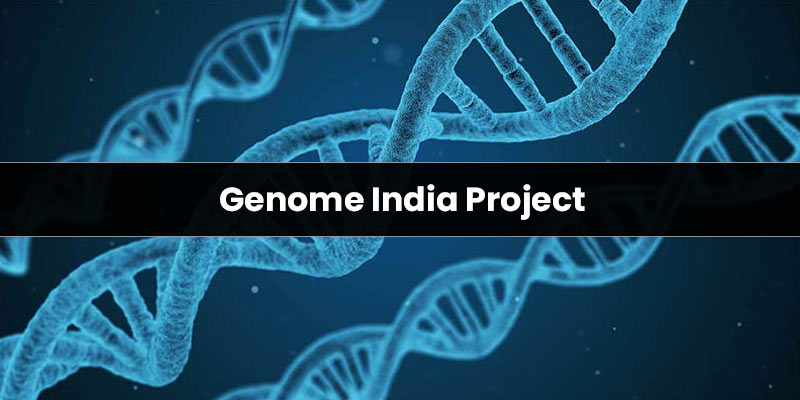- India
- Jan 10
What is Genome India Project?
• In a milestone in biotechnology research, genome sequencing data of 10,000 Indians will now be available to researchers to develop precision medicines tailored for the local population.
• At the Genomics Data Conclave in New Delhi organised by the Department of Biotechnology, Science and Technology Minister Jitendra Singh unveiled the ‘Framework for Exchange of Data (FeED) Protocols’ for sharing of genetic data with researchers.
• Singh also launched the ‘Indian Biological Data Centre (IBDC) DATA Access Portal’ and unveiled the ‘Call for proposals on Genome India Data’.
• The Indian Biological Data Centre (IBDC) will facilitate seamless access to valuable genetic information, enabling researchers to explore genetic variations and design more accurate genomic tools.
• The 10,000 whole genome sequencing (WGS) samples come from diverse Indian populations and provide a rich catalogue of genetic variations.
What is Genome India Project?
• Genome India is a flagship project funded by the Department of Biotechnology, Ministry of Science and Technology.
• The project was launched in January 2020, with the ambitious goal to identify and catalogue the genetic variations of diverse Indian populations by sequencing the whole genome of 10,000 healthy individuals from 99 communities, representing all major linguistic and social groups, across the country.
• The project is implemented through nationwide scientific collaboration and innovation involving 20 national institutes which included 4 sequencing centres; 13 sample collection centres; and 8 method development centres (with some centres playing multiple roles).
• The target of the project is to develop a reference genome for the population of India which will lead to a better understanding of the nature of diseases and specific interventions essential for various ethnic groups.
• The study will help in designing genome-wide and disease-specific genetic chips for low-cost diagnostics and research.
• The consortium completed the whole genome sequencing of 10,074 individuals in January 2024.
• The consortium of 20 institutions has established a national biobank of DNA and plasma for approximately 20,000 individuals at the Centre for Brain Research located in the Indian Institute of Science campus, Bengaluru.
• Over 10,000 sequence files of whole genome sequencing are already archived at the Indian Biological Data Centre (IBDC) set up by the Department of Biotechnology at the Regional Centre for Biotechnology (RCB), Faridabad.
What is the project’s significance?
• India, with 1.4 billion population with prominence of several ethnic and linguistic groups along the vast geographical spread, has remarkable genetic diversity.
• It is a treasure trove providing unique opportunity wherein we can document the genetic structure of the nation’s population and create a resource for researchers and clinicians that will help unravel the genetic underpinnings of chronic diseases currently on the rise in India, such as diabetes, hypertension, cardiovascular diseases, neurodegenerative disorders and cancer.
• Such a resource for the country will also help filter variations or mutations conferring risk of monogenic disorders.
• The information generated from whole genome sequencing can facilitate future human genetics research in the country with greater precision, and to design a genome wide association array for the Indian population to develop precision healthcare and diagnostics for major diseases at affordable costs.
• This digital public good will democratise data and become a valuable national resource, fostering large-scale human genetic studies and empowering nationwide research efforts by the Indian and even the global research community.
• This initiative is set to position India as a leader in genomics, enabling the development of genomic chips tailored to the Indian demographic, thereby enhancing the precision of genetic studies.
Manorama Yearbook app is now available on Google Play Store and iOS App Store

